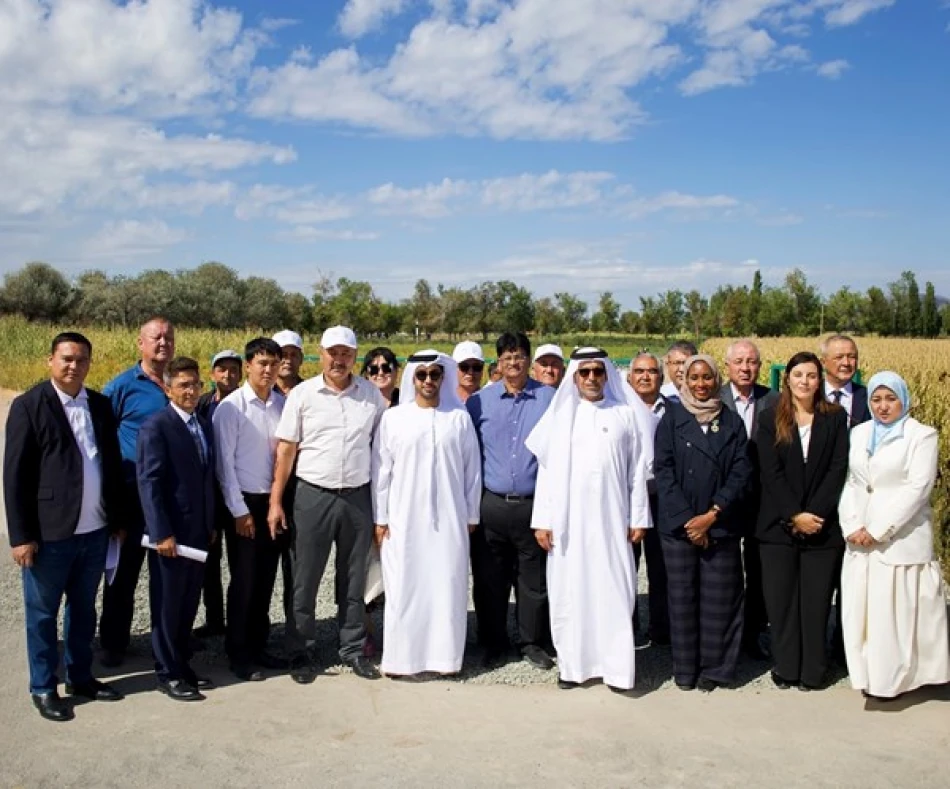
Abu Dhabi Fund Launches Agricultural Systems Upgrade Project in Karakalpakstan, Uzbekistan
The Abu Dhabi Fund for Development has launched a $5 million agricultural project in Uzbekistan's Karakalpakstan region, targeting one of the world's most challenging farming environments. The initiative aims to restore agricultural productivity in degraded lands around the shrinking Aral Sea, where extreme drought and soil salination have devastated local farming communities.
The project, which began in 2022 with 18.7 million dirhams in funding, represents a joint effort between the Abu Dhabi Fund, Uzbekistan's government, and several international research centers. It focuses on developing sustainable farming systems that can withstand the harsh conditions created by the Aral Sea crisis.
Here's how the project works: researchers are testing over 20 crop varieties that can survive drought, heat, and high salt levels across three demonstration sites. They're also building modern irrigation infrastructure, low-cost greenhouses, and seed production facilities. One standout feature combines salt-tolerant crops with fish farming in an integrated system that maximizes water efficiency.
The Aral Sea disaster has left behind a landscape of salt-crusted earth and dust storms, making traditional farming nearly impossible. This project could provide a blueprint for similar regions facing climate challenges worldwide. The approach goes beyond just growing food - it includes training programs for local farmers and develops economic opportunities that weren't there before.
Mohammed Saif Al Suwaidi, Director General of the Abu Dhabi Fund for Development, said the project reflects the UAE's commitment to global food security and sustainable development goals. He emphasized that the initiative goes beyond agriculture to strengthen economic resilience and create new opportunities aligned with Uzbekistan's long-term development vision.
Dr. Tarifa Al Zaabi from the International Center for Biosaline Agriculture highlighted the project's innovative approach, noting they've developed Uzbekistan's first integrated system combining vegetable production, algae cultivation, and fish farming while maintaining optimal water use. The project also includes awareness and training programs to build farmers' capacity for sustainable practices in arid, saline environments.
The collaboration involves multiple partners including Uzbekistan's ministries of environment and agriculture, the International Center for Biosaline Agriculture, the International Innovation Center for the Aral Sea Basin, and the Karakalpakstan Agricultural Research Institute. This multi-institutional approach ensures the project can draw on diverse expertise while building local capacity for long-term sustainability.
Most Viewed News

 Layla Al Mansoori
Layla Al Mansoori






